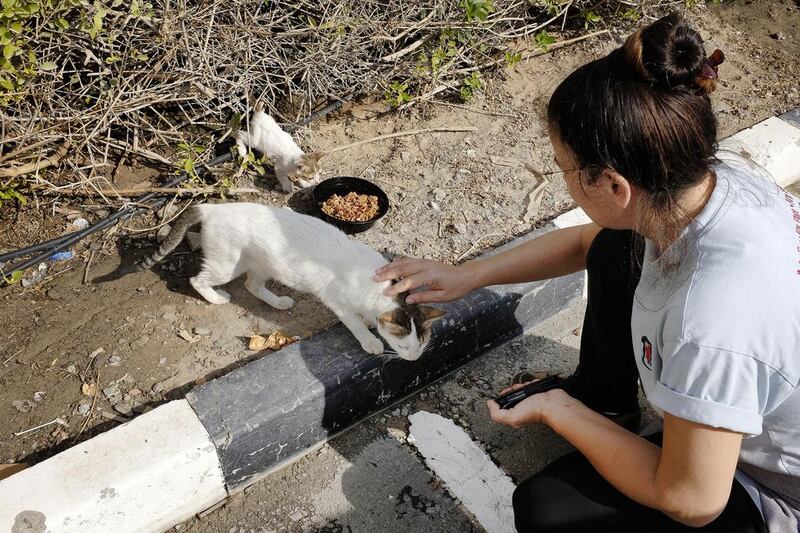DUBAI // Call after call about dead and injured cats pushed animal rights activist Mahin Bahrami to the brink, so she decided to establish the first licensed trap-neuter-return (TNR) operation in the UAE.
The scheme involves trapping stray cats in the Jebel Ali Free Zone area where they are prevalent, sterilising them before releasing the cats.
“People have been doing TNR for a very long time but it has always been a personal initiative, which is a good thing,” said Ms Bahrami, co-founder of the Middle East Animal Foundation.
“We are hoping to set up an organised plan to save the cats from a life of just breeding, getting sick and dying,” she said.
The cats are usually gathered at night and taken to the veterinarian for neutering, and they are released the next day.
The operation depends solely on volunteers and donations.
After something of an ordeal running about from one authority to another to obtain official approval, Ms Bahrami started the first authorised TNR operation in the ladies quarters of Jebel Ali Free Zone’s New West Accommodation early last month.
She said the previous policy had been to trap the cats and remove them, but that did not solve the problem because new cats would simply move into the area and replace them.
Her plan is to trap the cats, neuter them and return them to the area, where she is installing a feeding station.
Ms Bahrami said she hoped that the facilities management company that used to remove the cats would help her to trap the cats by using its equipment and provide transport to and from the vets.
Of the 32 cats and kittens trapped so far, 11 have died from various illnesses or injuries, 11 were sterilised and returned, while the rest were sent to foster homes or were adopted. Because of a lack of food, cats would fight and seriously injure one another, Ms Bahrami said.
“One of the trapped cats had a large wound on his head.
“You could actually see where the fangs had entered his skin,” she said.
“When they’re not being fed or taken care of properly, they fight and possibly pass around FIV, which is like the Aids virus for cats but is not transferable to humans.”
With the TNR operation and a structured feeding plan in place, the number of injured cats would fall dramatically, she said.
“It’s important to return the cats to the area where they are found, because they are familiar with it and will actually stop other cats from coming in,” Ms Bahrami said.
“We will print out flyers in Hindi explaining the TNR procedure to the residents in the area.
“We’ll have a good system in place, and it will look good and animal-friendly for the Jebel Ali Free Zone area.”
dmoukhallati@thenational.ae






